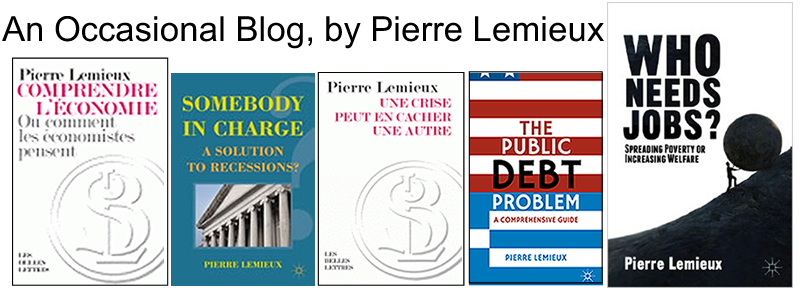In a couple of weekend tweets, Donald Trump warned American companies against shipping goods to America from foreign countries: “Please be forewarned prior to making a very expensive mistake!” “THE UNITED STATES,” he added in bold letters and with his usual inconsistency, “IS OPEN FOR BUSINESS.” “Open for business” apparently means that the government is open to meddling with businesses.
Trump is threatening to impose high customs duty in order to cancel any advantage American companies get from producing offshore. Foreign companies would be subjected to the same tariffs (Trump must not hate only American businesses), increasing American consumer prices for all targeted goods.
This move would be in breach of international trade agreements and may lead to trade wars and a world recession. But even without such extreme consequences, making good on this protectionist threat would harm most Americans. And here is the crucial problem: “open for business” in the Trumpian, protectionist sense means forbidding Americans to import.
Trump does not officially justify tariff protection by invoking the interests of inefficient domestic producers to stay open selling above foreign their competitors’ prices. Cunningly or mistakenly, he appeals to the interest of workers, by telling them that he will save their jobs.
Keeping workers’ inefficient jobs is not a defensible objective. Banning chainsaws and other mechanized equipment in the logging industry from the 1950s on would have saved more than 100,000 American jobs –- at a high cost for American home buyers and others. Freezing manufacturing employment from 1979 on, when their actual number started decreasing, would have saved 7 million jobs –- but American consumers would pay much more for their air conditioners, cars, etc. (As a percentage of the American labor force, manufacturing employment started declining in the early 1950s.)
Both globalization and technological progress (itself promoted by globalization) played a role in the changing American economy. And these two trends will continue to be disruptive except if the American economy is frozen in its current state and, thus, prevented to grow.
A free-market economy cannot be protectionist. It is geared to satisfying consumers, not producers (producers include workers and capitalists). Consumers, not producers, get what they want –- although workers do express their preferences between consumption and leisure by deciding how much labor they supply.
It is true that the typical individual is both a consumer and a producer. But he produces to consume, not the other way around. Hence, the primacy of consumer demand.
What protectionism does is not as much to punish bad foreign producers as to punish American consumers plus a number of American producers. Both American consumers and producers will be forbidden to import what they want at the best price they can get. American consumers will pay more for their goods, and American producers more for their inputs. The disruption of complex international supply chains will ultimately be paid by consumers.
How do we know that protectionism hurts consumers more than it benefits businesses (workers and capitalists)? The economic demonstration can be easily summarized. Assume the contrary –- that foreign competition costs more to would-be protected companies than it benefits consumers. In this case, domestic producers could bribe American consumers by undercutting foreign companies’ prices on the domestic market. If domestic producers cannot do this, it means that protectionism brings them lower benefits than the cost imposed on consumers.
When Walmart prices on air conditioners, fishing rods, and home appliances start increasing, when pick-up trucks become more expensive, Trump’s voters will realize that they have been defrauded by protectionist advocates.
